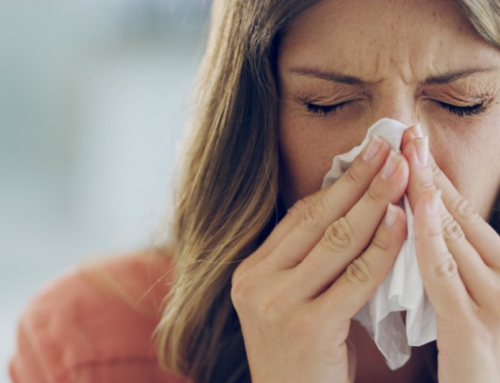Milliyet Newspaper – November 9, 2020
Food allergy is a health problem seen in 6% of children. It will be beneficial to take some precautions at schools during the pandemic period for children with food allergies. President of the Allergy and Asthma Society Prof. Dr. Ahmet Akçay and Association member Allergy Dietician Ecem Tuğba Özkan talked about the precautions that can be taken in schools for children with Food Allergy.
There are precautions that a parent of a student with a food allergy can take to prevent undesirable situations.
Meet with School Staff and Teachers
The best way to meet the needs of children with food allergies in schools; working as a team with the child, the child’s parents and school staff. Give them specific information about how they can support your child. Clear any misconceptions they may have about food allergies.
Effective communication is key to helping everyone understand food allergy, ensuring children’s health safety and enjoyment of food. Make sure their teachers and cafeteria staff know your child and know about problem foods. Get the monthly menu and review it with your child when you first contact the nutrition department. Ask your doctor about the first aid plan to be made about the foods that the child is allergic to and the development of allergic shock, and share it in writing with the school administration and the teacher.
Make sure everyone knows the allergic shock first aid plan
The two main issues schools need to address to help keep children safe are; food allergy management and the inability to respond to emergencies with epinephrine. Make sure that there are written plans such as Food Allergy and Allergic Shock (Anaphylaxis) First Aid Plan in the school and that the necessary people are trained in this regard. Let your child and anyone in need know where epinephrine autoinjectors are stored, who has access to them, and how they can be administered in an emergency.
It is very important to determine in advance how the teacher will intervene in case of accidental consumption of the allergic food and to receive training on the first aid plan for this. It would be useful to have written permission from the family that they can intervene in line with this first aid plan. Having teachers who know the first aid plan will make families very comfortable. For this, it is very important to receive the first aid plan in writing from your doctor and share it with the school management and teacher in case of allergic foods and allergic shock development.
Volunteer at in-school community events
Volunteer or accompany your child at events such as classroom activities with food, field trips, birthdays, etc. If you are unable to attend, have a trusted friend, neighbor or family member attend the epinephrine administration.
Give your child tasks
Read books about food allergies to young children. Help them practice with auto-injector replicas and create fun handwashing songs before and after meals. To older children; Avoid reading food labels, avoiding unlabeled (including homemade) foods.
Teach them how to recognize the signs of an allergic shock reaction and how to respond. The general rule that children with food allergies should follow should not consume any food that they do not know and do not trust, even with the advice of others.
Make safe meals and snacks fun
In families with allergies, food can often be a source of tension. Instead, try to teach kids with allergies to eat healthy and safe. Read allergy-friendly cookbooks and blogs for inspiration, and involve your child in safe meal planning, shopping, and preparation.
Measures to be taken at school
The presence of residues containing allergic foods in the preparation and service equipment in the school kitchens carries a risk in terms of allergies. Precautions should be taken in the areas where food is prepared and served, and the plates and cutlery used should be carefully washed.
The labels of all the foods that children will consume at school should be checked beforehand, and if possible, the child should be made aware of this issue.
Most importantly, help your child feel comfortable by focusing not only on what to avoid, but also on foods that are safe to eat. Food given by friends poses the greatest risk of an allergic reaction to children with food allergies.
It should be ensured that packaged foods containing especially colored sugar and additives are not kept in the school canteen. In addition, it would be beneficial to ban the consumption of nuts and their sale in the canteen, as nuts can be deadly for those with nut allergies.
To summarize;
-Food allergy is an important health problem in children.
– It is very important to inform the teacher and the school administration about the allergic foods about the child with food allergy.
– It is very important that the school administration and the teacher receive training on how to make a first aid plan in case of allergic shock.
– In case of allergic shock due to food allergy, it should be ensured that there is a written plan for adrenaline and application within the framework of this plan.
– It would be beneficial to ban nuts, which can be deadly, as well as packaged foods containing additives and dyes in the school canteen.
– It will be beneficial to avoid contact with allergic foods in the school kitchen, and to prepare the foods carefully in a separate area for allergic children.






